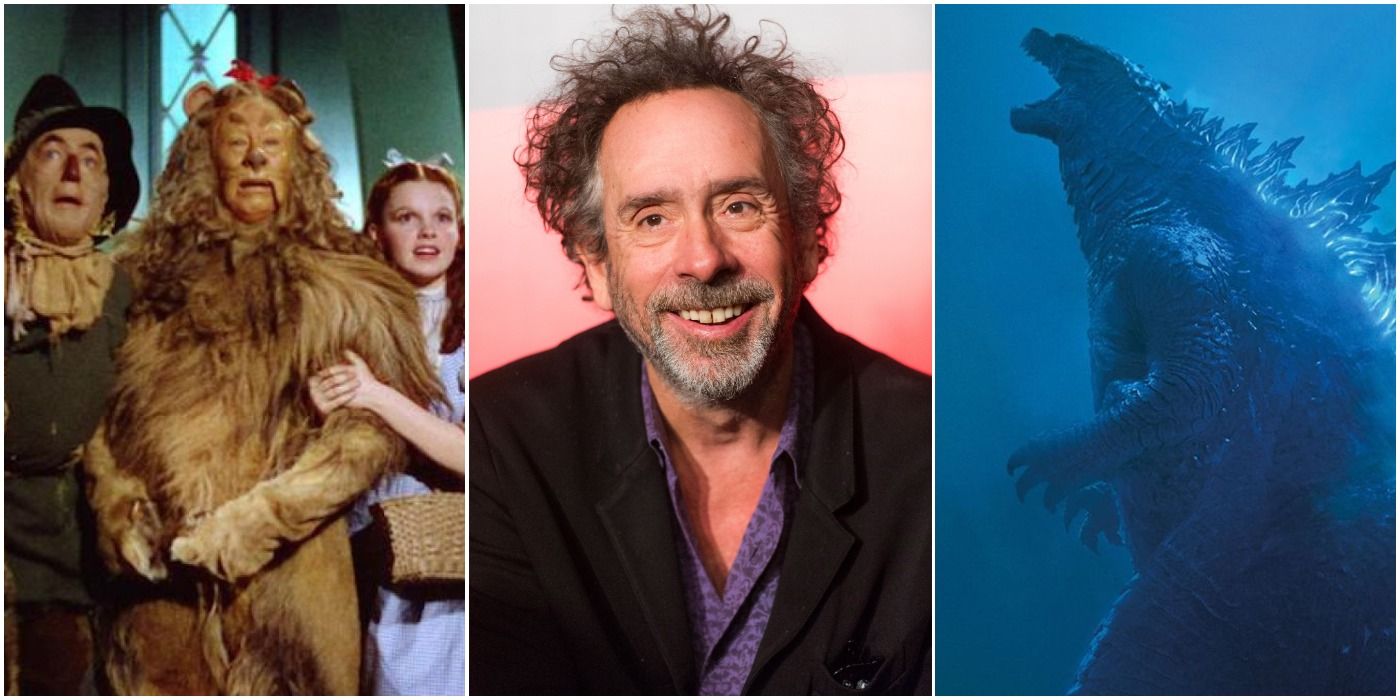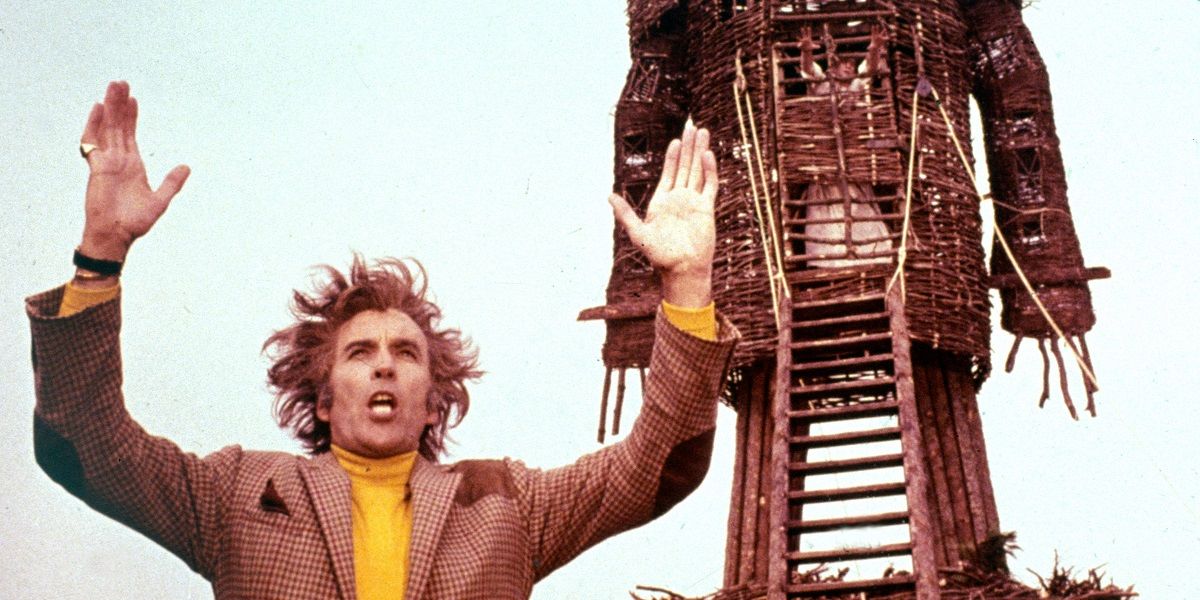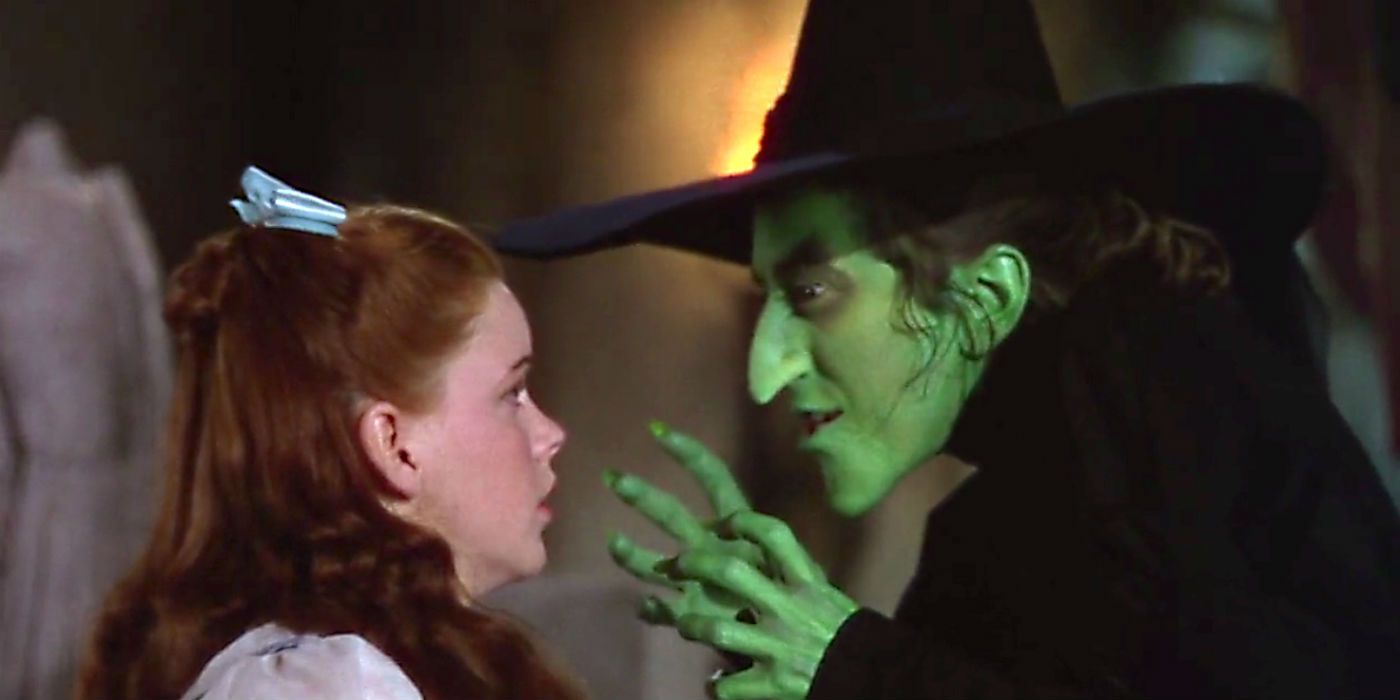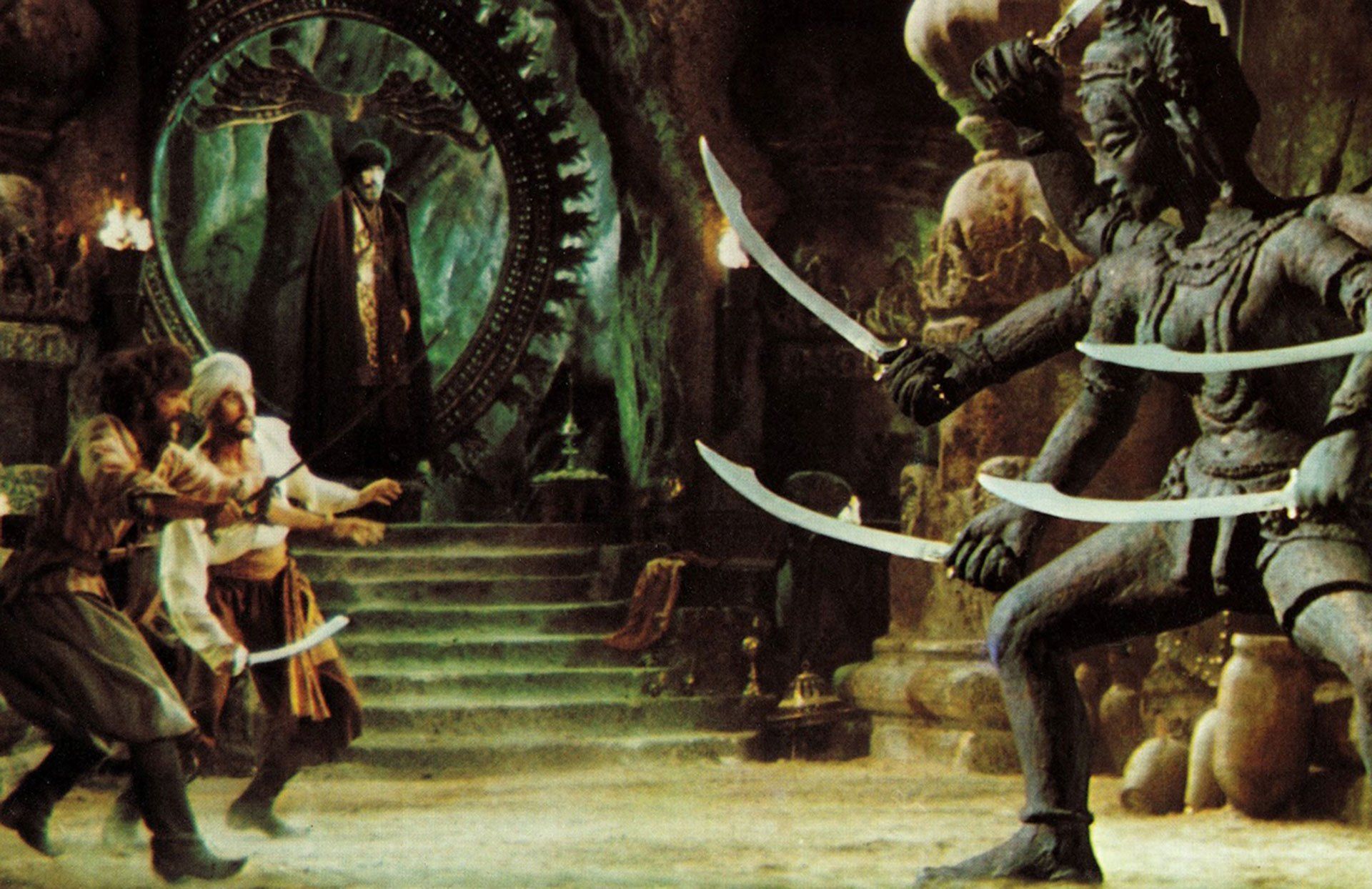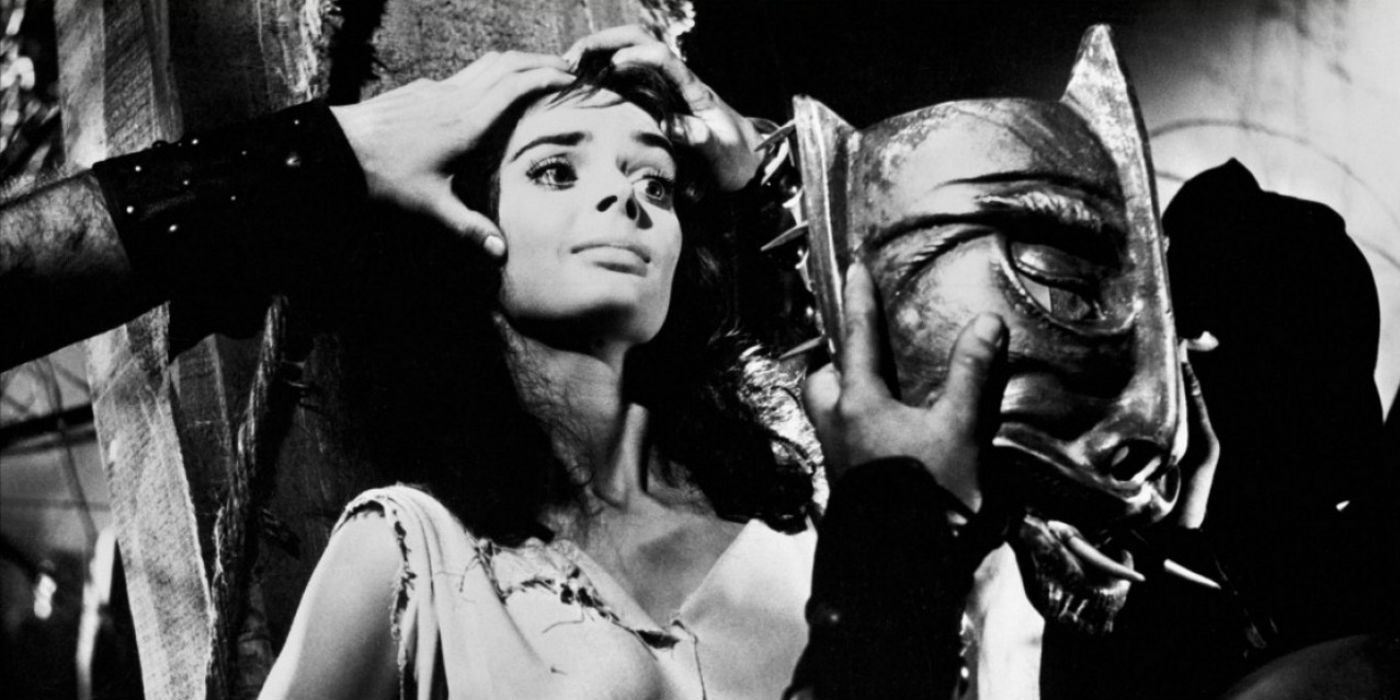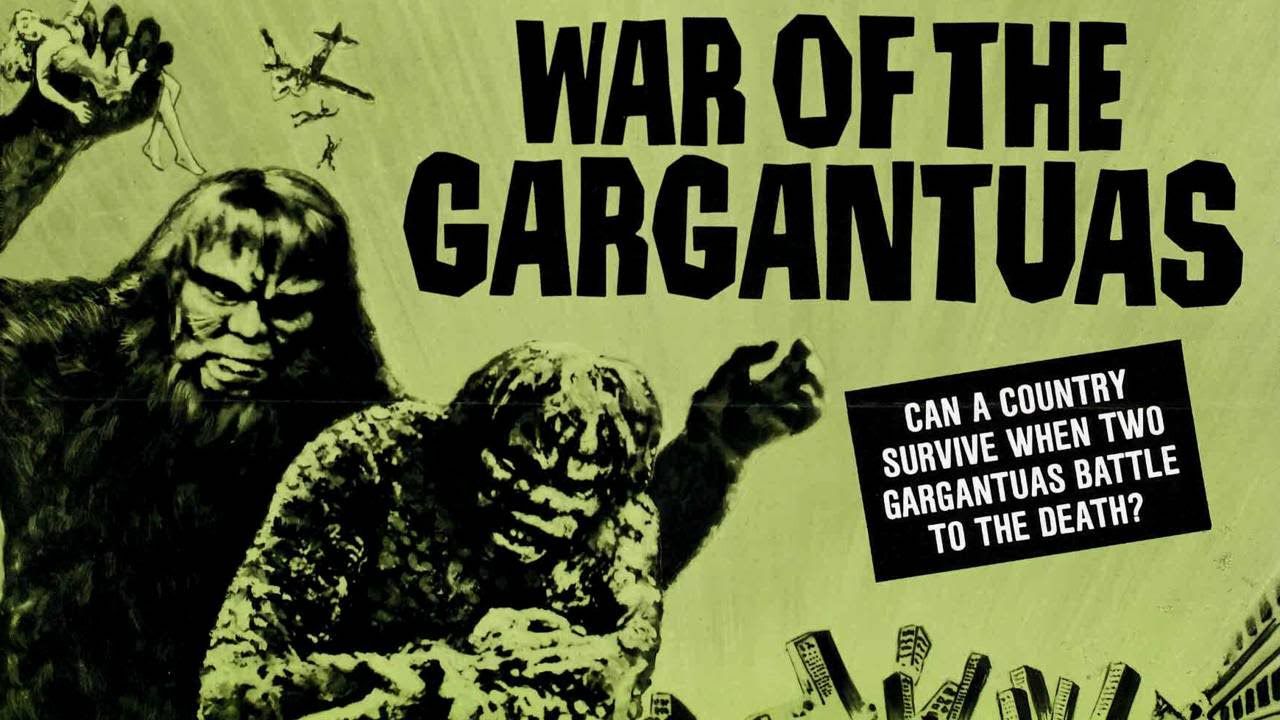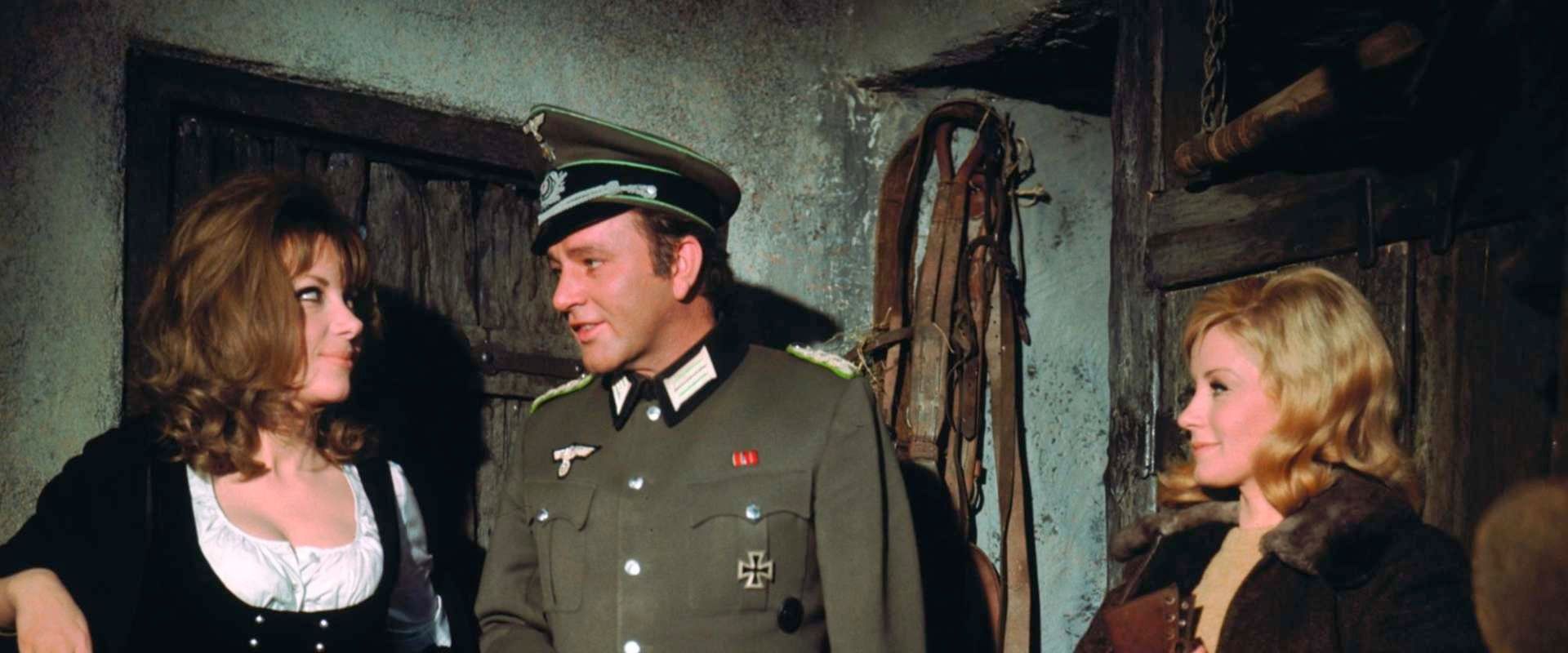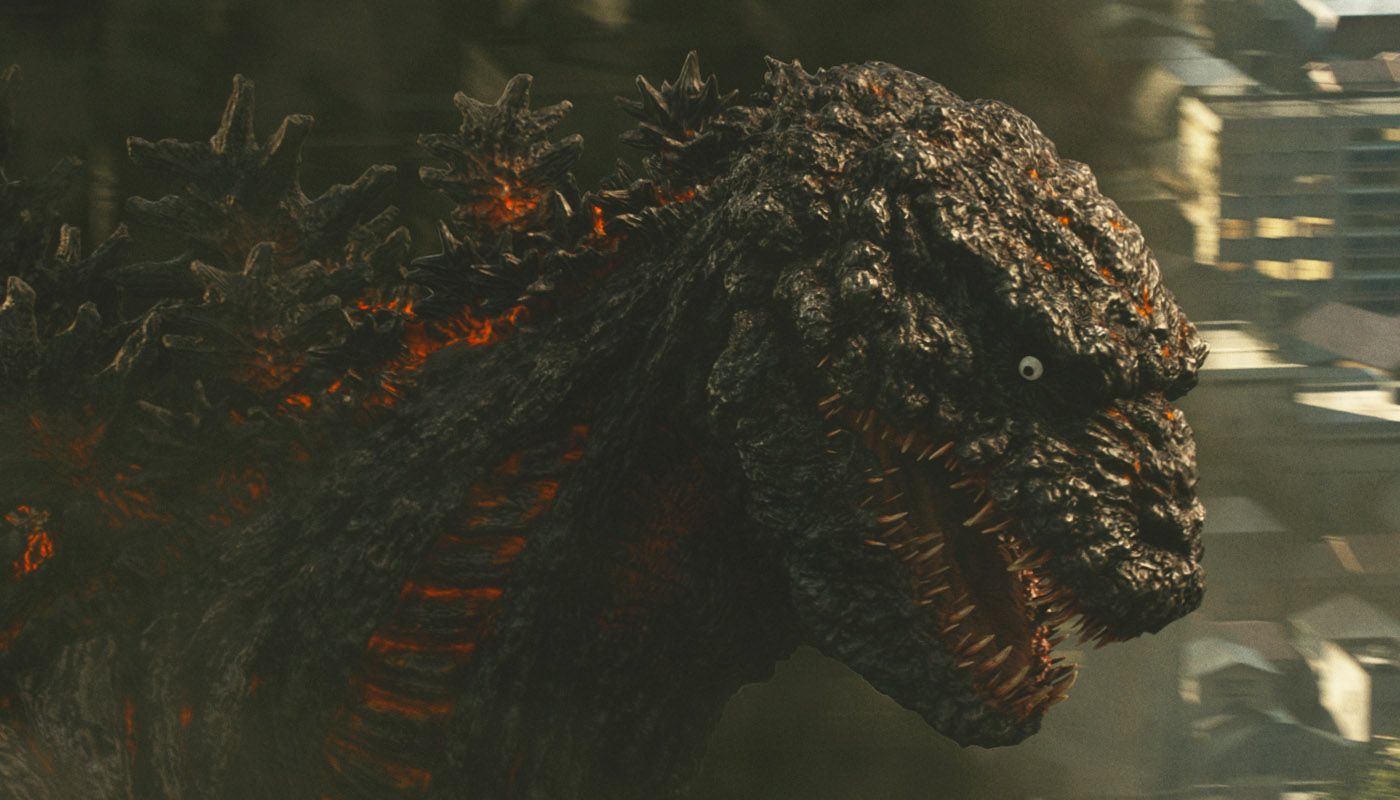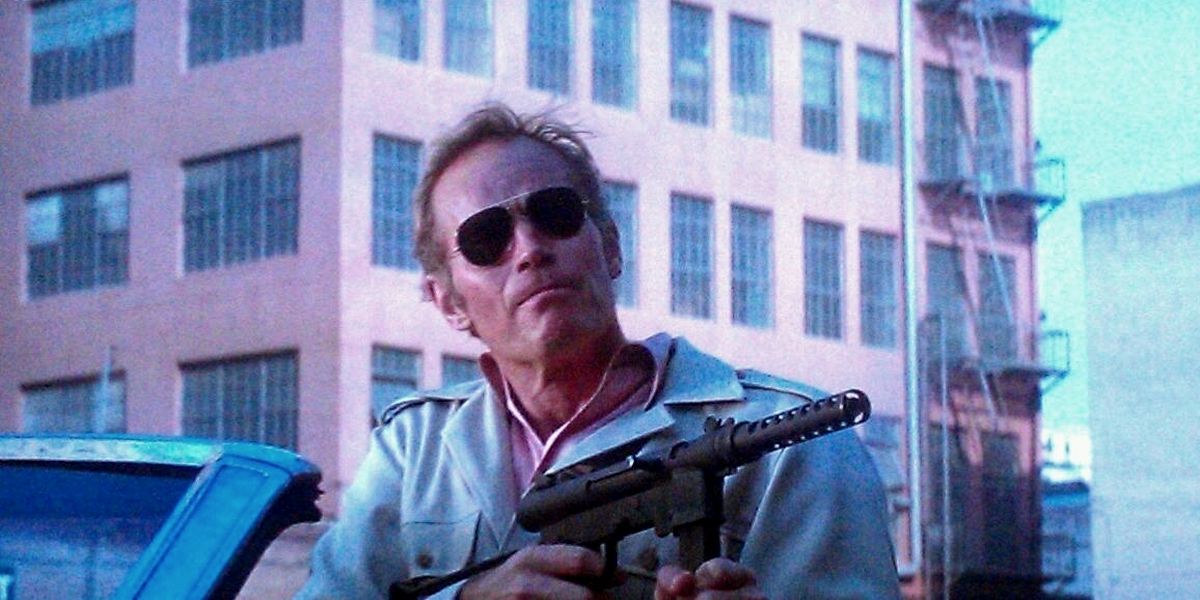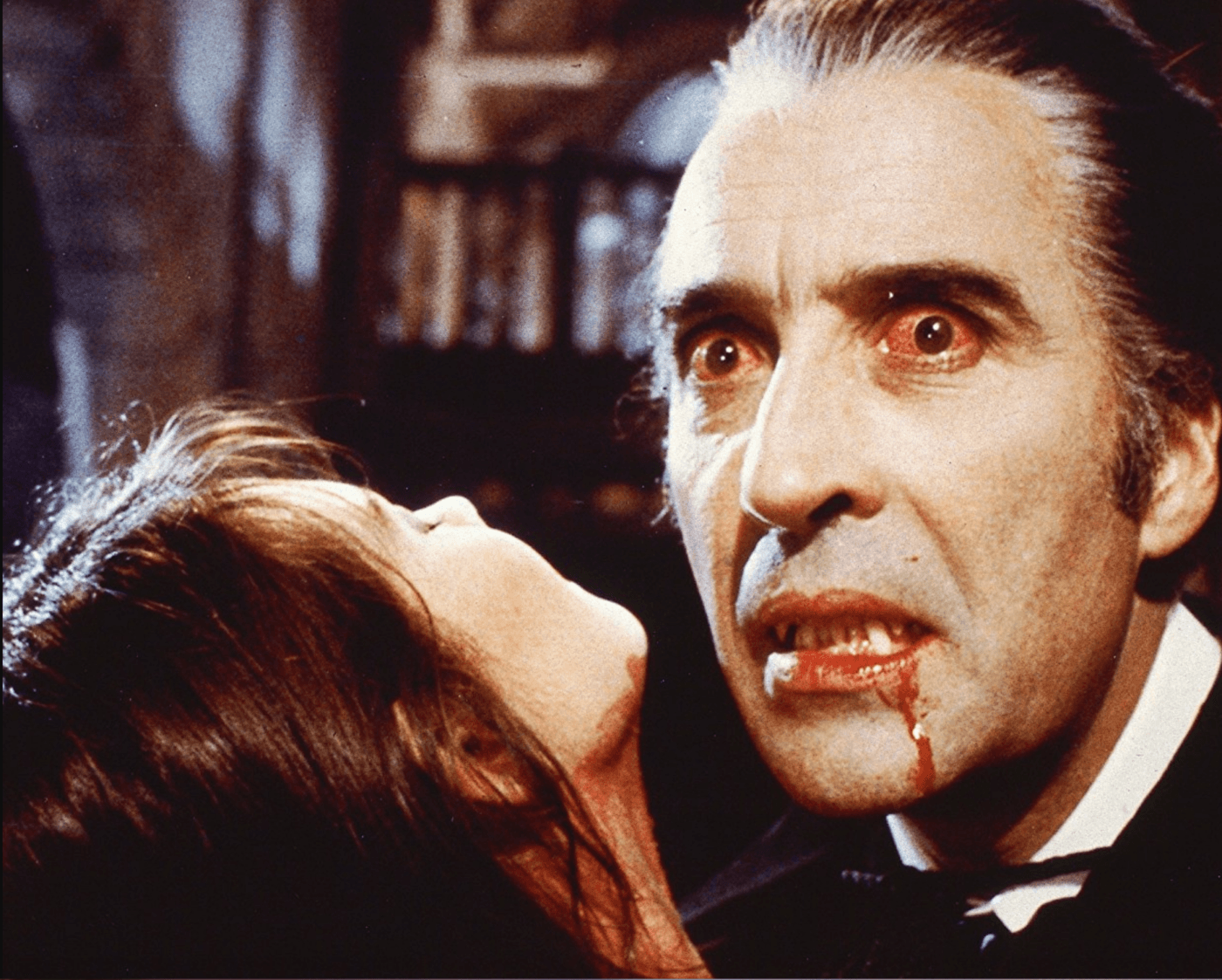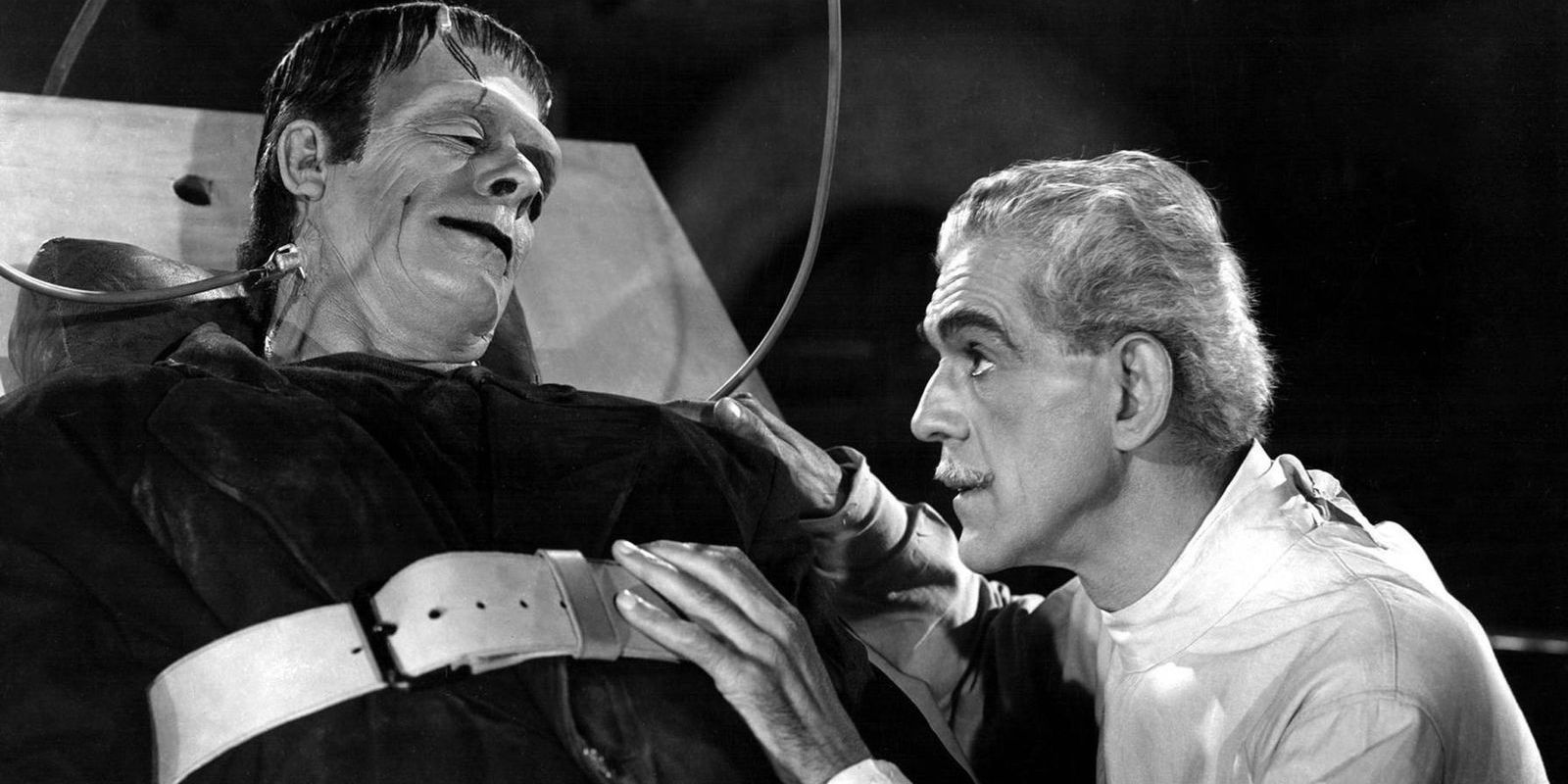Tim Burton is one of the industry’s most creative directors. Heck, creative is a huge understatement. One look at that mop of wiry hair is probably enough to convince you that he’s a Grade A Doc Brown of an eccentric.
If you’re familiar with his work, you’ll know that’s absolutely the case. From his uncanny artwork (featuring characters like Oyster Boy and The Pin Cushion Queen) to movies like Edward Scissorhands and Corpse Bride, there’s a distinctive style that runs through absolutely everything Burton does.
He’s made cult classic movies (A Nightmare Before Christmas absolutely did not take off at first) using archaic techniques like stop motion, and he’s made huge blockbusters like Batman and Alice in Wonderland. In the process, he’s inspired creative minds across all sorts of different media. Which movies have inspired the man himself, though? Let’s take a look at some of his favorites.
The Wicker Man
To kick things off, we have a very typical Tim Burton pick (if you can even use the words typical and Tim Burton in the same sentence).
The Wicker Man was released in December 1973, a British horror mystery directed by Robin Hardy. It centres around a police officer named Neil Howie, who visits the mysterious island of Summerisle in search of missing girl. While there, he finds that the residents have adopted a form of Celtic Paganism, and a taste for human sacrifice.
The Wicker Man has a lot of the attributes that Tim Burton prizes in a movie: an otherworldly, dream-like quality, the deceptive sense of things seeming normal on the surface… and, of course, the presence of one of Burton’s long-time collaborators, Christopher Lee. Expounding on the virtues of The Wicker Man, Burton has stated that it was one of Lee’s favourite movies he’s worked on.
The Wizard Of Oz
Here’s another classic story that brims with concepts the director loves to explore. Throughout his movies, the motif of a mixed-up, outcast character trying to find their way in the world is common (see Edward Scissorhands, for instance, a misfit in every possible sense of the word). This has been said to be Burton expressing how he himself felt, growing up.
This message is plain throughout his retelling of the Alice in Wonderland story, and it’s no surprise that he pinpoints The Wizard of Oz as an inspiration. “All these kinds of stories… are an internal journey,” he’s said, expressing his admiration for the iconic tale.
The Golden Voyage Of Sinbad
As Tim Burton fans will know, he’s one of the few directors who has continued to pursue stop-motion animation in recent years. It’s a very niche, very specialized and utterly painstaking manner of making movies, and has fallen by the wayside lately. That’s a no-brainer, really, in light of the increasing sophistication of computer-generated characters.
Burton isn’t averse to CGI where necessary (Alice in Wonderland is absolutely rife with it), but he’s a very visual moviemaker. Stop-motion classics like Corpse Bride, Frankenweenie and, of course, A Nightmare Before Christmas were the result. He traces his admiration for this dying art of a movie-making technique to the likes of 1973’s The Golden Voyage of Sinbad.
Black Sunday
As original, unmistakable and innovative as Tim Burton’s work is considered to be, he still adopts elements of the movie-makers that he most admired. Everyone, in any media, is inevitably going to do so.
For Burton, one of the biggest inspirations would be Mario Brava, an Italian director of horror movies. Brava’s work is characterized by his use of dramatic imagery and color, which is something reflected in Burton’s own gorier works (Sleepy Hollow and Sweeney Todd: The Demon Barber of Fleet Street, for instance).
In Brava’s Black Sunday, a witch is sent to be burnt at the stake by her own brother. Two hundred years later, she returns from the grave to take her revenge on her descendants. There were once rumors that Burton wanted to remake this movie, though they’re unconfirmed and nothing ever came of it.
The War of the Gargantuas
Tim Burton is well-known for his love of –and homages to— classic monster movies. For him, the monsters in these films have the most personality, the most soul, and are often the sympathetic character in a curious way (as in Frankenstein).
In The War of the Gargantuas, two huge humanoid creatures are created from the discarded cells of Frankenstein’s monster, and embark in a serious of destructive confrontations. Burton has declared this one of his very favorite movies, and his young daughter’s favorite too (she loves to role-play as the green gargantua, he reports, while his son plays the brown one).
Where Eagles Dare
So far in this rundown, we’ve seen a series of movies that are just Tim Burton to the core. From the stop-motion roots of The Golden Voyage of Sinbad to the artsy, dream-like horror of The Wicker Man and Dark Sunday, fans will see exactly how these influences make themselves known in his work.
At the same time, though, Tim Burton wouldn’t be Tim Burton if he didn’t throw a curveball into the mix. He has cited Clint Eastwood’s Where Eagles Dare as another of his favorites. This 1968 movie sees Eastwood as a member of an elite team sent to infiltrate a German castle in World War II to rescue a General. Perhaps it’s not a direct influence, per se, but the eccentric director has stated that he can never resist watching this one when he catches it while channel-surfing.
Godzilla
As we know, then, imagination is a crucial factor in Tim Burton’s work. His movies are so distinctive because he’s such a visual director, being persnickety over little details others may not consider and adding elements others would never have thought of.
With this, and his penchant for siding with the ‘sympathetic’ monsters, here are two more Tim Burton facts that are unlikely to come as a surprise: Godzilla is another of his favorite movies. He even felt such a strong connection with the titular beast that one of his childhood ambitions was to be the man in the Godzilla suit.
The Omega Man
Ah, yes. The film itself may be a little obscure to most of us (having released way back in 1971), but The Omega Man is one heck of an iconic tale. It’s based on Richard Matheson’s 1954 novel I Am Legend, which was also adapted on two other occasions (most recently with the movie of the same name starring Will Smith).
Having created Ed Wood, it’s clear that Tim Burton is a fan of classic sci-fi with more than a hint of cheese about it, and The Omega Man fits that description perfectly.
Dracula A.D. 1972
We’ve already touched on Burton’s long-time collaborator Christopher Lee, and how he enjoyed working on The Wicker Man. While Lee may not have held this same sentiment for Dracula A.D. 1972, it’s still a very important and notable movie and one that’s dear to Burton's heart.
There’s a certain whiff of Dark Shadows about this one: a centuries-old vampire is brought back to life in a contemporary setting (it was at the time, at least), not quite knowing what the heck is going on. It was an attempt to engage a modern audience with Hammer’s movies, and a curious juxtaposition that Burton appreciates.
Frankenstein
When it comes to the classic movie monsters of Hammer fame, Dracula’s popularity is pretty well unparalleled. The charismatic Count’s influence on the landscape of cinema (and on Burton’s imagination) is unquestionable, but there’s another monster that’s right up there too: Frankenstein.
Frankenstein’s monster, as we’ve seen, encapsulates everything that Burton prizes about Hammer: the sympathetic, victimized monster, the angry villagers out to destroy something they don’t understand… these are popular motifs in the filmmaker’s work, and they have their roots in Mary Shelley’s classic novel and its adaptions. Frankenweenie is Burton’s most direct reference to Frankenstein, but there are nods to it throughout his movies.

